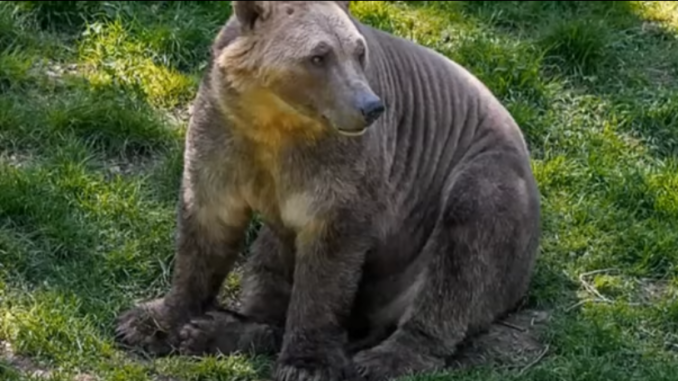
Researchers theorize that as the Arctic cap shrinks a bit more each year, polar bears are running out of their natural ice habitat, forcing them to take up residence on land. Simultaneously, warming weather allows grizzly bears to migrate north of their traditional territories. The result is predictable, yet surprising. Where the range of the two species overlap, there’s increased competition for food resources and mating. Distantly related, the two species are distinct and separate, having branched apart millions of years ago from a common ancestor. Yet, despite having significantly divergent DNA they’re able to produce offspring colloquial known as grolar bears or pizzly bears, or less often grizzlar or nanulak. Regardless of the name, these cubs grow up to be larger than either of their parents.
Wondering where the names come from? It’s said that if the father is a grizzly, the cubs are called grolar bears. If the father is a polar bear, the cubs are pizzlys… or would that be pizzlies? Doesn’t matter, the names are recent inventions and absolutely unofficial. You can probably guess the etymology of grizzlar, but how about nanulak?Wildlife officials in Canada invented that one based on the Inuit names for polar bear, which is ‘nanuk’ and the Inuit name for grizzly, which is ‘aklak’.
Unlike the progeny of other species that interbreed, the products of grizzly-polar bear mating are not sterile. When horses and donkeys mate, for example, a mule is created but the animal is sterile and cannot reproduce. DNA samples from grolar and pizzly bears prove that they can and do reproduce.
Scientists hypothesize that the hybrid bears are better equipped for a warmer climate than their polar forebears. (Get it?)
“The Majestic Grolar Bear” (3:37):
“Rare Hybrid Bear of Polar Bear and Grizzly Bear” (2:14):
Question Of The Night: Your favorite kind of bear is?
